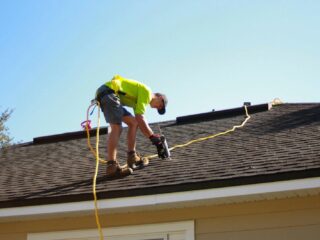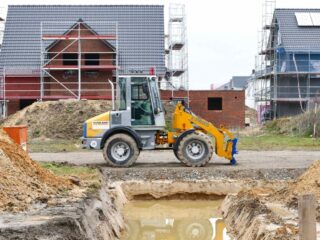
Your home is precious not just because of its monetary value but also because of all the precious memories it represents. Yet many homeowners tend to downplay the risks their properties constantly face.
Unexpected disasters or security vulnerabilities can put you in a stressful and financially difficult position. This article aims to inform you about the realistic risks involving your property and the first steps towards dealing with them.
Common Threats to Your Property
The first common threat to your property is house fires. In 2023, in the US alone, there were over 300,000 fires. Furthermore, 48% of these fires started from cooking-related incidents. Even if a fire doesn’t grow big enough to destroy an entire home, the damage it can do warrants serious preparation.
The second threat is burglary. Homeowners who only have the bare minimum security are often susceptible to break-ins. But even homes in gated communities, which are supposed to be safe havens, can still be victims of theft. This is why you can never be too prepared when it comes to home security.
Essential Measures for Physical Security
Let’s start by making sure your home has adequate physical defenses. Purchase complex locks that are nearly impossible to pick. Or you can even get a few smart locks that can only be unlocked digitally. Also, consider investing in surveillance cameras and alarm systems. Motion sensor lighting helps deter intruders by lighting dark hiding areas they might use.
If you’re tight on budget, even the act of trimming bushes to increase visibility is an effective countermeasure. Another option is to build strong relationships with your neighbors, allowing you to look out for one another, acting as mutual home watchers when someone is away, and this doesn’t cost a thing.
Home Insurance for Financial Security
Being prepared isn’t only about disasters, it’s also about putting into consideration plans to bounce back from the worst scenarios. Homeowner’s insurance provides the necessary safety net in the event of theft or a disaster.

When selecting an insurance, you must go with the policy that covers the two major threats we just mentioned. At the same time, you need to know the accurate value of your home and your belongings before choosing a policy. Otherwise, you risk being underinsured.
Cybersecurity for Homeowners
Yes, aside from physical security, internet security is also necessary for homeowners. If you dismiss this element, you’ll be left vulnerable to more attacks on your personal devices, including smart home systems.
Now, picture this: thieves may resort to cyber attacks as part of a more extensive plan to gain entry to your property. It’s quite possible to hack into inadequately secured smart locks or surveillance cameras, which can disable critical defenses and allow them to spy on your routines.
To prevent those instances, you should have strong, unique passwords for all devices and enable multi-factor authentication. A password manager can streamline this process and significantly reduce human error. Learn what NordPass is if you are seeking a reliable credential vault.
Home Inventory and Emergency Plans
Even after you’ve fortified your home’s physical and digital defenses, there’s more you can do. You will want to maintain a detailed home inventory. We know it’s a lot of effort to keep track of all your valuables, but doing so can speed up the insurance claims process. Take photos of your most expensive items and attach a receipt to those photos, if possible.

Creating a detailed emergency plan for nightmare scenarios is of equal importance as well. This often involves having each member of your household be familiar with escape routes and emergency contacts. You can even conduct disaster drills, too, so your family knows what to do.
Taking Action to Secure What Matters
All types of homes, whether inherited or newly moved into, deserve every layer of protection and security you can afford. If you want the value of your assets to remain stable and you want peace of mind in your own home, consider implementing the tips we’ve mentioned.












